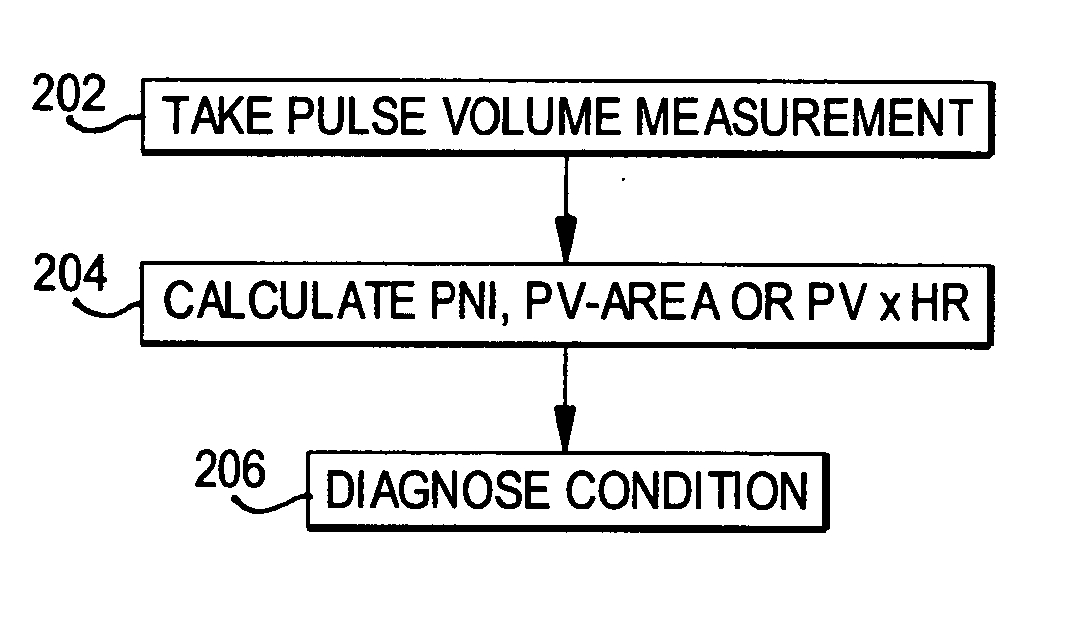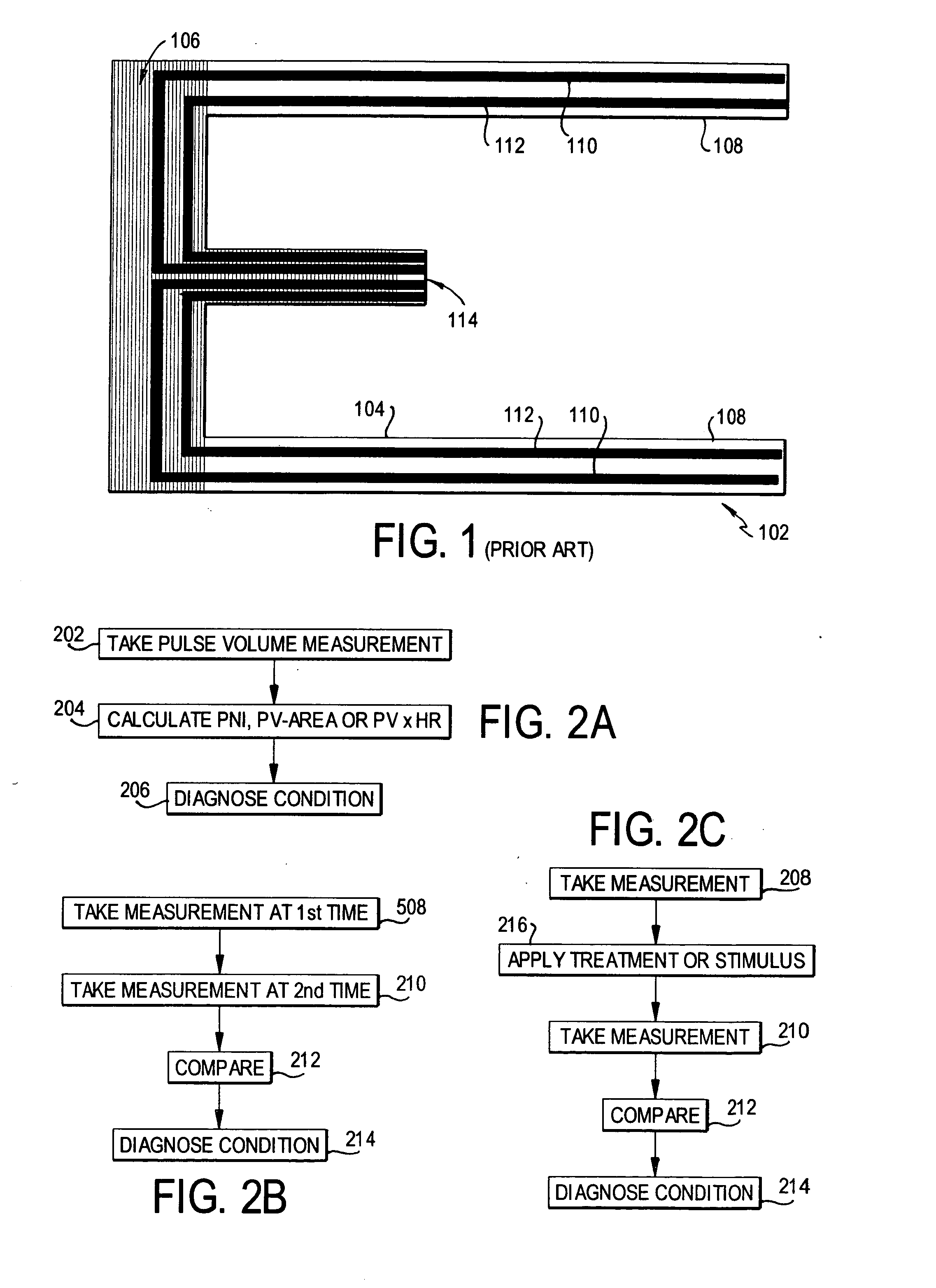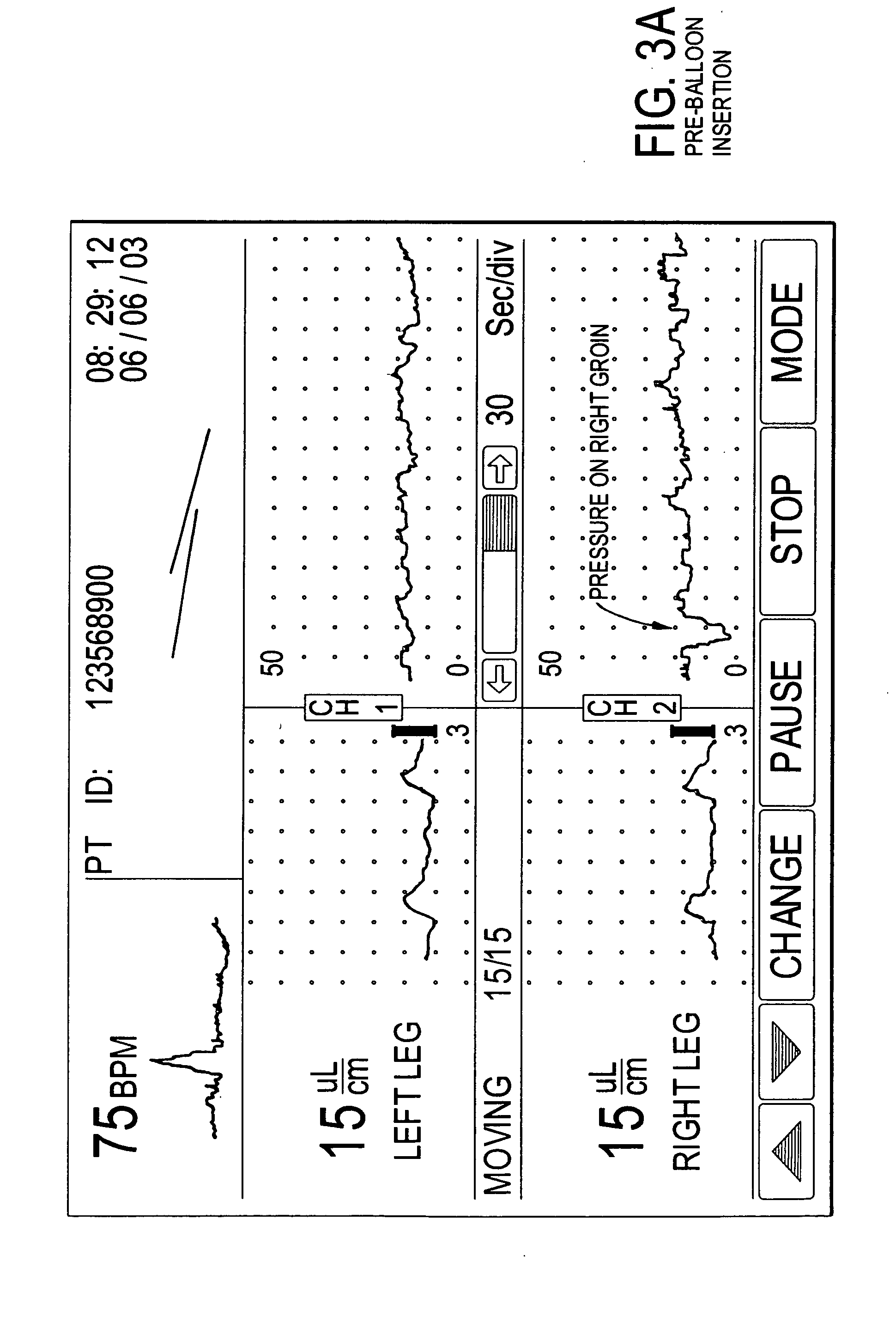Methods of diagnosis using pulse volume measurement
- Summary
- Abstract
- Description
- Claims
- Application Information
AI Technical Summary
Benefits of technology
Problems solved by technology
Method used
Image
Examples
Embodiment Construction
Preferred embodiments are set forth in detail herein with reference to the drawings. First, three general procedures will be outlined. Then, their application to various uses will be described in detail.
The most general procedure is shown in the flow chart of FIG. 2A. A pulse volume measurement is taken once or more than once in step 202, using a suitable device, such as, for example, any of the devices disclosed in the above-cited Marks patent and Smith et al patent application. Then, if required, the PNI (or PV-area OR PV×HR) is calculated in step 204. The condition is diagnosed in step 206.
Some conditions, as will be explained below, must be diagnosed in accordance with a change in time of the pulse volume or the PNI (or PV-area or PV×HR). In that case, as shown in FIG. 2B, the measurements are taken at different times in steps 208 and 210 and compared in step 212; then the diagnosis is made in step 214.
Still other conditions, as well as evaluation of treatment and testing...
PUM
 Login to View More
Login to View More Abstract
Description
Claims
Application Information
 Login to View More
Login to View More - R&D
- Intellectual Property
- Life Sciences
- Materials
- Tech Scout
- Unparalleled Data Quality
- Higher Quality Content
- 60% Fewer Hallucinations
Browse by: Latest US Patents, China's latest patents, Technical Efficacy Thesaurus, Application Domain, Technology Topic, Popular Technical Reports.
© 2025 PatSnap. All rights reserved.Legal|Privacy policy|Modern Slavery Act Transparency Statement|Sitemap|About US| Contact US: help@patsnap.com



